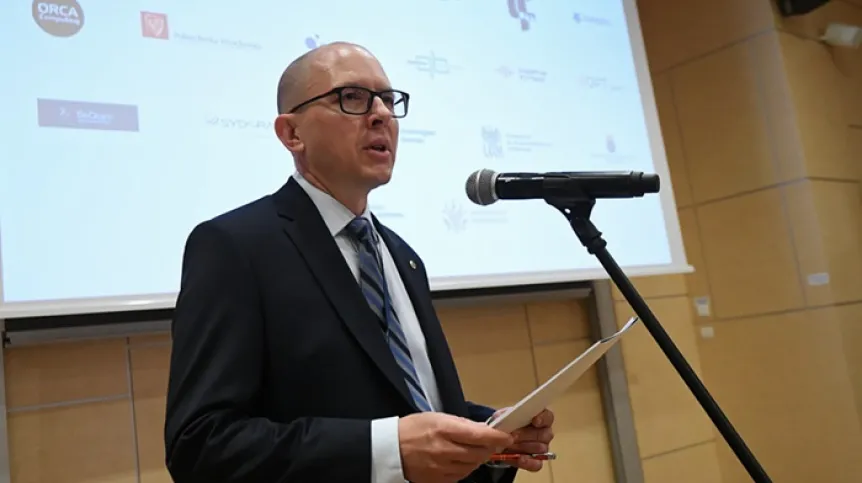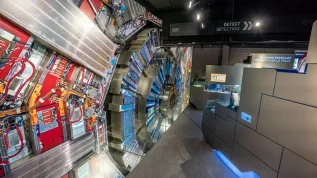
Poland is home to numerous world-class research teams specializing in quantum technologies, placing the country at a critical juncture in the global race to commercialize these groundbreaking innovations.
As Dr. Konrad Banaszek, a physicist at the University of Warsaw and Chairman of the Quantum Technologies Cluster (Q Cluster), says, the nation stands to gain significantly from strategic investments in quantum research and development.
However, without decisive action, Poland risks missing a unique opportunity to solidify its place in this rapidly evolving field.
The implications of quantum technologies, though deeply rooted in abstract and often counterintuitive principles, are increasingly becoming tangible and market-relevant. The first quantum revolution—characterized by the application of quantum mechanics to develop technologies such as transistors, lasers, atomic clocks, and MRI machines—has already had profound effects on various industries, including telecommunications, healthcare, and defense. Today, we find ourselves on the precipice of the second quantum revolution, with innovations like quantum cryptography, quantum sensors, quantum measurement devices, and, potentially, quantum computers, poised to reshape the technological landscape.
Poland’s Position in the Global Quantum Landscape
While Dr. Banaszek acknowledges that competing with leading nations like the United States and China in the development of full-scale quantum computers remains a significant challenge for Poland, he identifies several other areas in which the country has substantial potential. These include quantum communication, quantum sensors, quantum metrology, and technologies that may support quantum computing. Unlike quantum computing, which faces substantial technical hurdles, many of these applications could reach the market in a shorter timeframe, making them particularly ripe for development.
To realize this potential, Dr. Banaszek argues that Poland requires a national quantum program that fosters greater collaboration between scientific communities, industry, and government. The current landscape, with research teams scattered across the country, working in isolation on individual grants and projects, presents significant barriers to developing cohesive, large-scale technological advantages. A coordinated, interdisciplinary approach, supported by infrastructure that encourages collaboration, is necessary for Poland to make meaningful strides in quantum technologies.
The Transformative Potential of Quantum Technologies
Quantum technologies have the potential to revolutionize numerous fields, ranging from information processing and telecommunications to defense, cybersecurity, and environmental monitoring. Among the most urgent concerns is the future of cybersecurity in a world where quantum computers could potentially undermine the encryption systems that secure private communications, financial transactions, and critical infrastructure.
Currently, cryptographic protections rely on the difficulty of solving complex mathematical problems using classical computers. However, quantum computers, leveraging quantum algorithms, would be capable of breaking these codes at unprecedented speeds. While powerful quantum computers are not yet a reality, the risk they pose to sensitive data and infrastructure is substantial. Dr. Banaszek notes that, while the development of such computers is unlikely to pose an immediate threat within the next few years, there remains a need for long-term planning and investment in quantum-resistant cryptographic systems to safeguard against future vulnerabilities.
Quantum Cryptography: The Path Forward
Although quantum computing remains in its developmental phase, quantum cryptography—the use of quantum mechanical properties to secure communication—has already begun to be tested in real-world applications. Some governments and financial institutions are exploring the potential of quantum cryptographic systems to secure sensitive data. Poland has also initiated its own experimental installations, utilizing quantum phenomena such as photon polarization to ensure data integrity and confidentiality.
However, Dr. Banaszek warns that not all products marketed as quantum cryptography are based on genuine quantum principles. In the emerging quantum technology market, there is a risk of "quantum-washing"—where companies exaggerate or misrepresent the capabilities of their products. Given the high stakes involved in cybersecurity, it is crucial to develop the expertise necessary to rigorously evaluate these technologies and ensure they adhere to the principles of quantum physics.
Quantum Sensors and Their Broad Applications
Another promising area of quantum technology is the development of quantum sensors. These sensors, which exploit quantum mechanical effects to achieve extraordinarily sensitive measurements, have a wide range of potential applications, from precision metrology to defense and environmental monitoring. In Poland, researchers are already working on quantum sensors for a variety of uses, including antennas for quantum communication and sensors capable of detecting gravitational fields, which could be used to explore subterranean resources or monitor the presence of submarines.
Dr. Banaszek points to the potential of quantum sensors to transform industries such as natural resource exploration, healthcare, and national security. Given the relative simplicity of these sensors compared to large-scale quantum computing systems, their path to market may be significantly shorter, providing Poland with an opportunity to lead in this rapidly advancing field.
The Quantum Market and Economic Viability
The growth of the quantum technology market is inevitable, but the speed at which it will mature depends largely on the costs associated with these technologies. At present, many quantum systems require extreme conditions—such as ultra-cold temperatures—to function, presenting a significant barrier to widespread commercialization. However, if quantum technologies can be made to operate at room temperature, the cost of production could decrease substantially, accelerating their deployment.
In particular, quantum sensors hold considerable promise for quicker commercialization. Unlike quantum computers, which require substantial computational power and complex systems, quantum sensors can operate with just a few qubits, making them easier to scale and integrate into practical applications.
The Need for a Coordinated National Strategy
To capitalize on these opportunities, Dr. Banaszek highlights the importance of a coordinated, inter-ministerial approach to quantum technology development. The ministries of education, science, defense, healthcare, and digitization, along with the National Centre for Research and Development, should all play an active role in creating a cohesive strategy for quantum technology research and commercialization.
While Poland is already recognized for its high level of scientific expertise and innovation in quantum research, Dr. Banaszek believes that a more structured, long-term approach is required to nurture this potential and turn it into a sustainable competitive advantage. The country’s scientific community, though highly capable, must be provided with the resources, infrastructure, and policy support to compete effectively in the global race for quantum dominance.
The Imperative of Action
The window of opportunity for Poland to emerge as a leader in quantum technologies is narrowing. While the quantum revolution is still in its early stages, the momentum is building rapidly, and the potential rewards are immense. By investing strategically in quantum research and development, fostering collaboration across scientific and industrial sectors, and developing the infrastructure necessary for commercializing these technologies, Poland can position itself at the forefront of this transformative field.
PAP - Science in Poland, Ludwika Tomala
tr. RL













